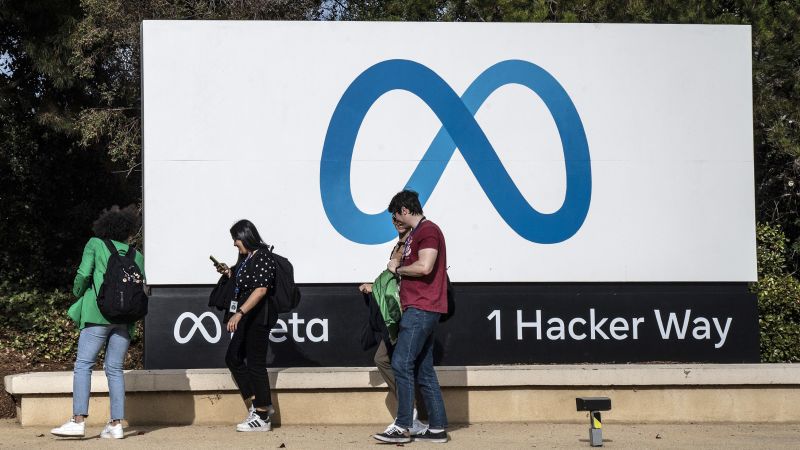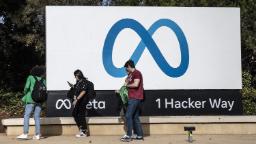

Washington
CNN Business
—
A threat by Facebook owner Meta to remove news content from its platforms appears to have been averted — for now — after US lawmakers omitted an antitrust bill it opposed from the text of an annual defense spending bill released late Tuesday evening.
Meta had warned on Monday that if Congress passed the competition bill as part of the larger legislation — temporarily allowing digital news publishers to negotiate collectively against tech platforms for a larger share of ad revenues — then the social media giant “will be forced to consider removing news from our platform altogether.”
The warning had come amid 11th-hour reports that lawmakers were considering including the measure as part of the National Defense Authorization Act for Fiscal Year 2023. Meta declined to comment on Wednesday morning.
Minnesota Democratic Sen. Amy Klobuchar, a key architect of the news media bill, has argued that the Journalism Competition and Preservation Act (JCPA) is necessary to help small, local journalism outlets survive in the face of Google and Facebook’s advertising dominance. It is one of several tech-focused antitrust bills pending in Congress.
In a statement, Klobuchar said: “Continually allowing the big tech companies to dominate policy decisions in Washington is no longer a viable option when it comes to news compensation, consumer and privacy rights, or the online marketplace. We must get this done.”
Danielle Coffey, executive vice president of the News Media Alliance, a supporter of the JCPA, said the bill was removed from the NDAA due to the ordinary give-and-take of high-stakes legislation. Congressional Republicans were strongly opposed to including non-defense legislation in the defense bill, resulting in many “ornaments” being rejected, not just the JCPA, said Coffey.
“At the end of the day, that determines our fate, even though there’s bipartisan support for this legislation,” Coffey said. “I don’t think anyone disagrees with the overall intention, which is to help newsrooms around the country.”
Coffey vowed to keep pushing for the JCPA’s passage, adding that it would be “devastating” if the United States fails to pass the JCPA while other countries including Canada and New Zealand consider similar measures.
Fight for the Future, a digital rights group opposed to the JCPA, applauded the bill’s omission from the NDAA on Wednesday and called on congressional leaders to advance the remaining tech antitrust legislation, which would erect new barriers between tech giants’ various lines of business and force Apple to allow iOS users to download apps from any source.
“There are precious few days left,” said Evan Greer, director of Fight for the Future. “It would be an embarrassment, and a travesty, if the Biden administration and Democratic leadership can’t deliver on their promise to rein in the abuses of Big Tech giants.”
The prospect of the JCPA’s imminent passage this week prompted swift pushback from the bill’s opponents, including some that at times have heavily criticized Big Tech.
In a letter Monday to congressional leaders, more than two dozen groups said the JCPA could make mis- and disinformation worse by allowing news websites to sue tech platforms for reducing a story’s reach and intimidating them into not moderating offensive or misleading content.
The letter also said the JCPA could end up disproportionately favoring large media companies over the small, local and independent outlets that have been hit the hardest by falling digital ad revenues.
Among those that signed the letter were the American Civil Liberties Union, the Electronic Frontier Foundation, The Wikimedia Foundation and Public Knowledge.
The tech industry launched its own offensive to keep the JCPA out of the defense bill, with groups including NetChoice and the Computer and Communications Industry Association announcing ad campaigns targeting the measure.
Meta, meanwhile, turned to a familiar playbook in threatening to remove from the platform. When similar legislation was on the verge of passing in Australia last year, the company briefly suspended users’ ability to share and view links to news stories on its platforms. (It later changed course and the legislation passed later that year.)
